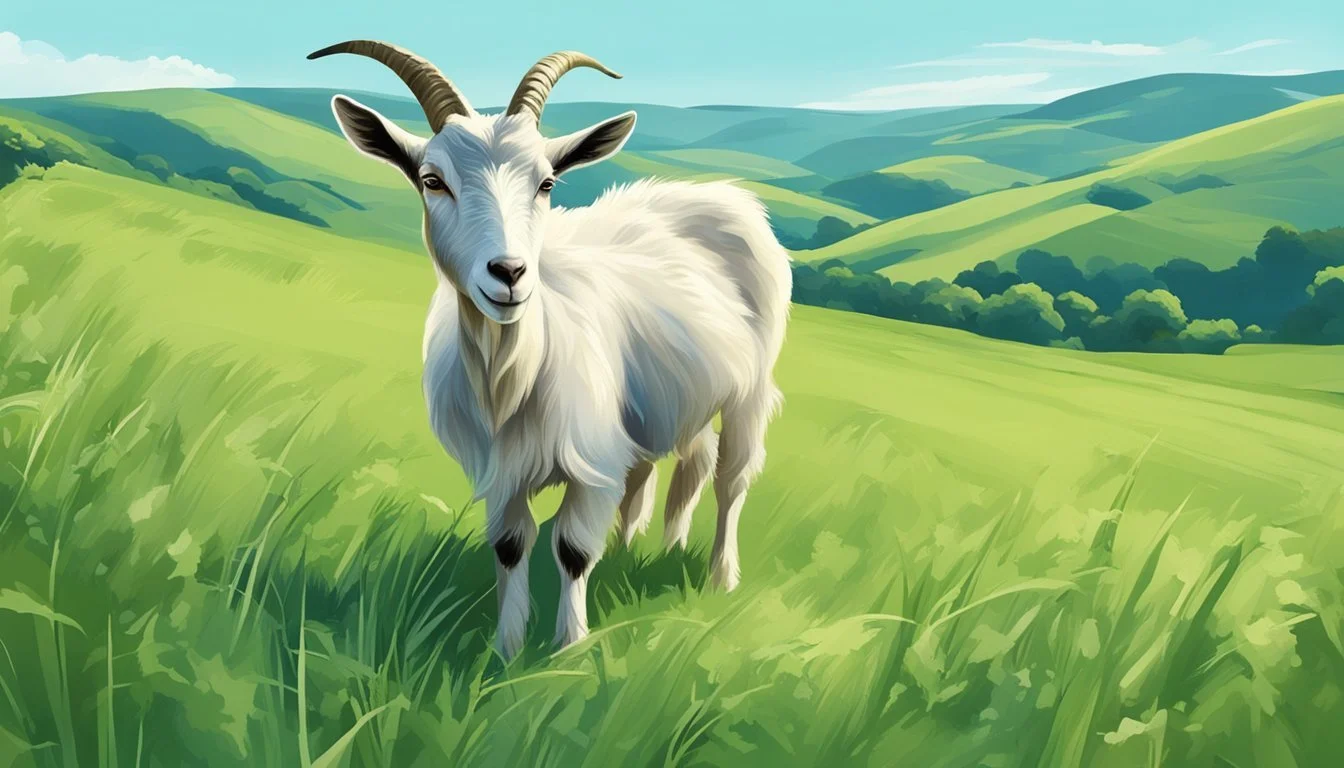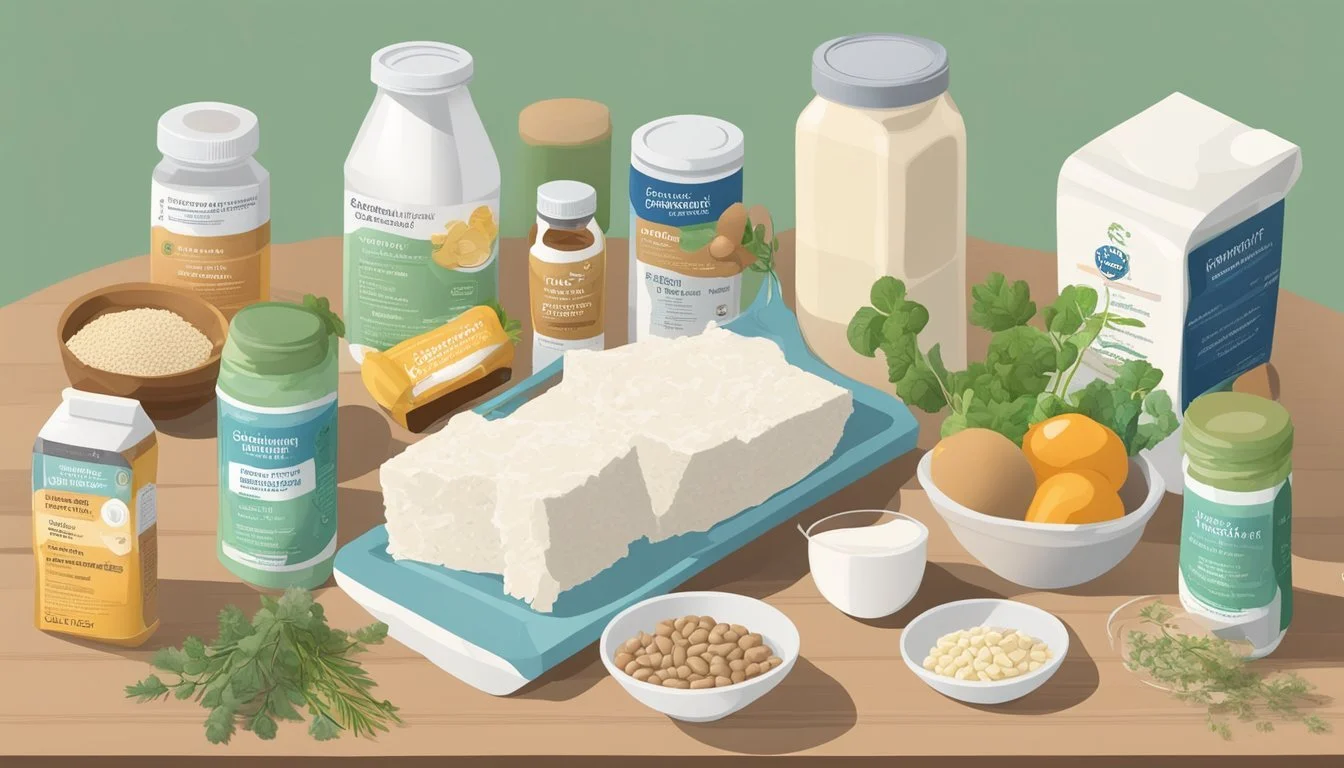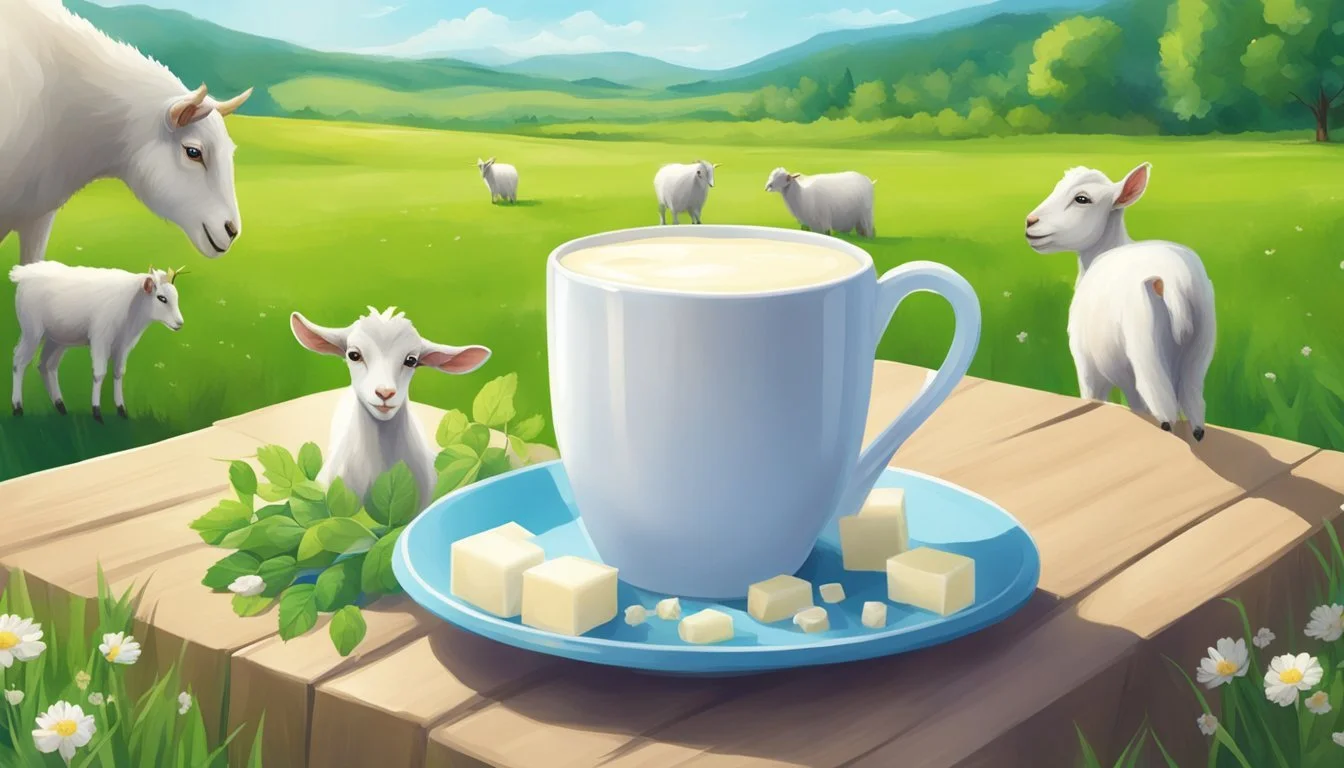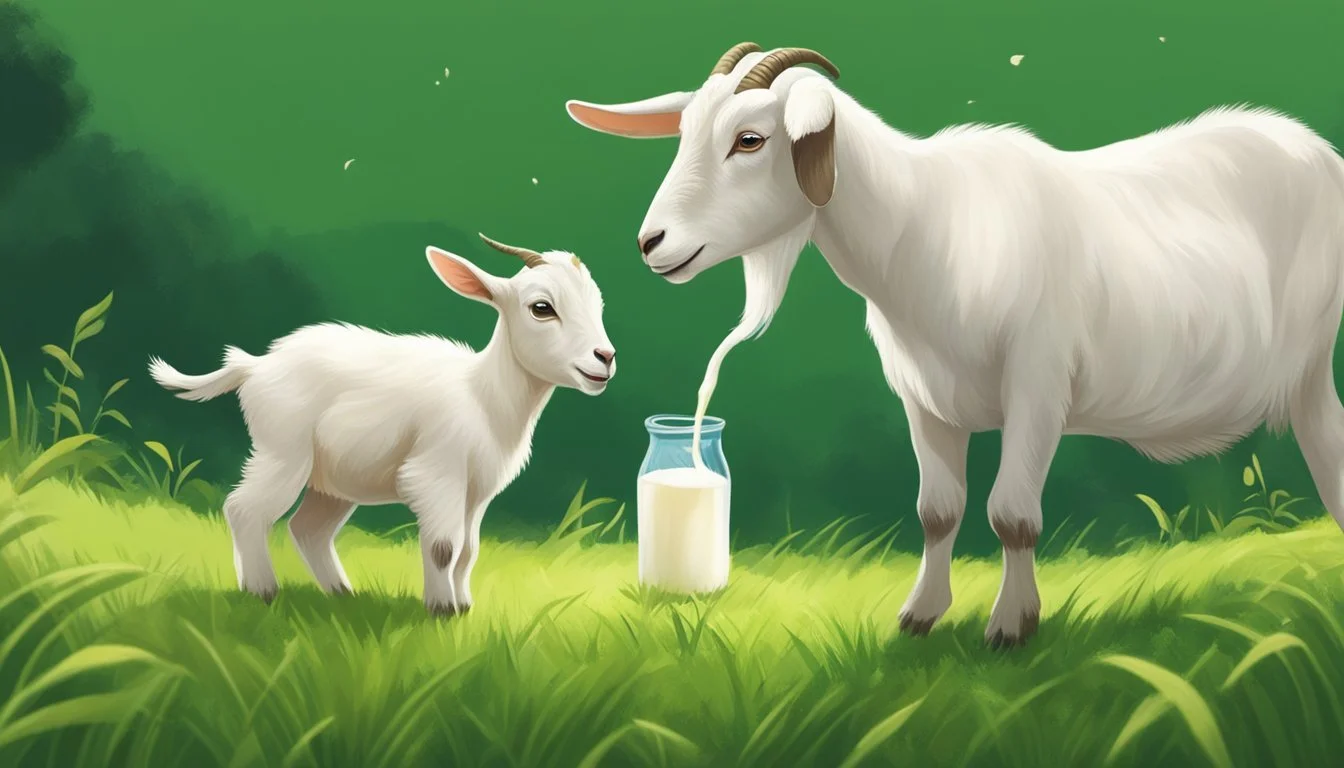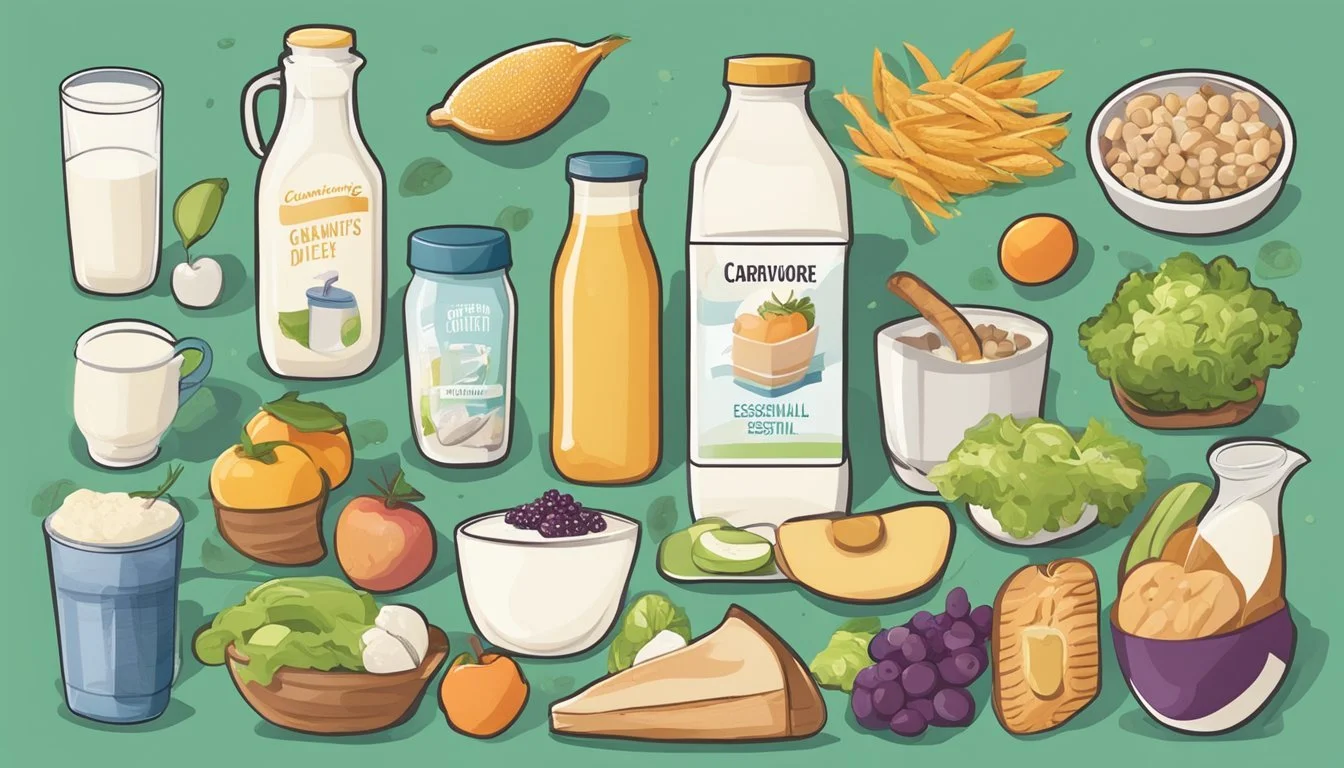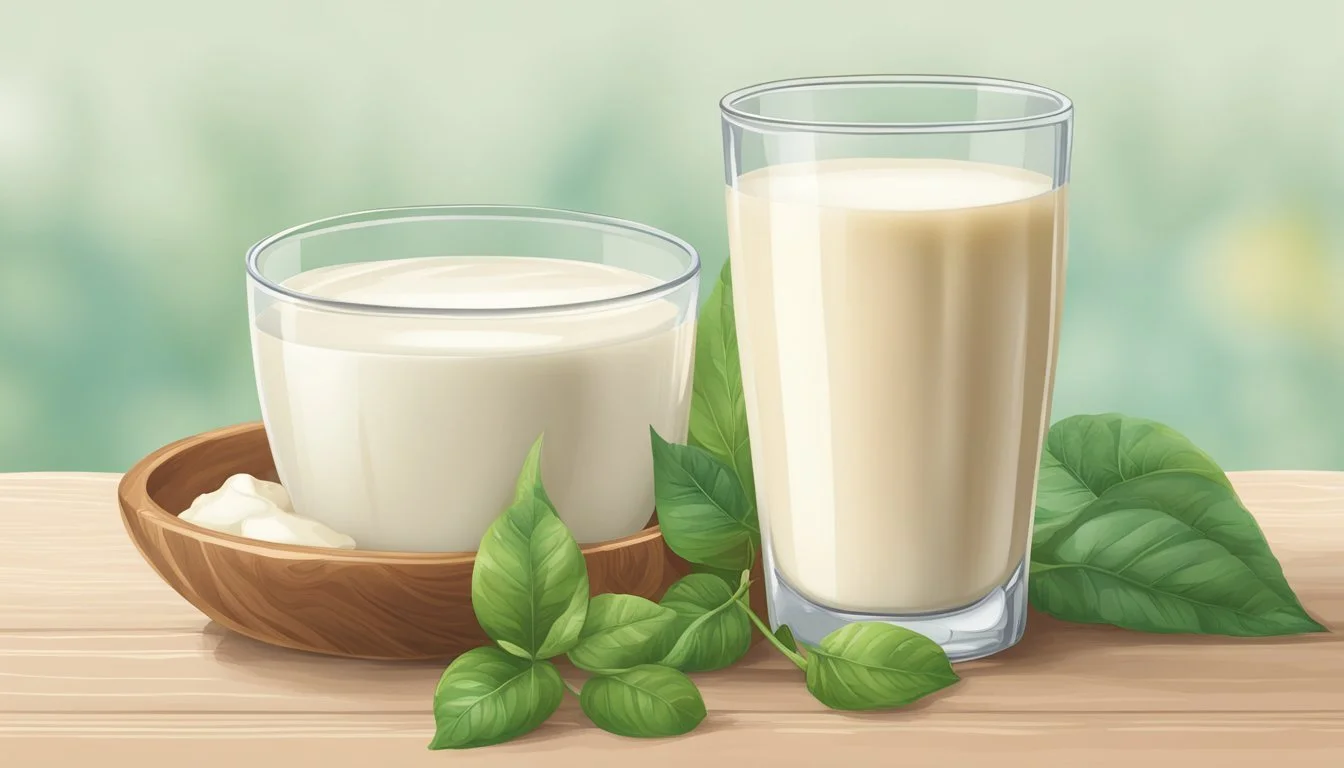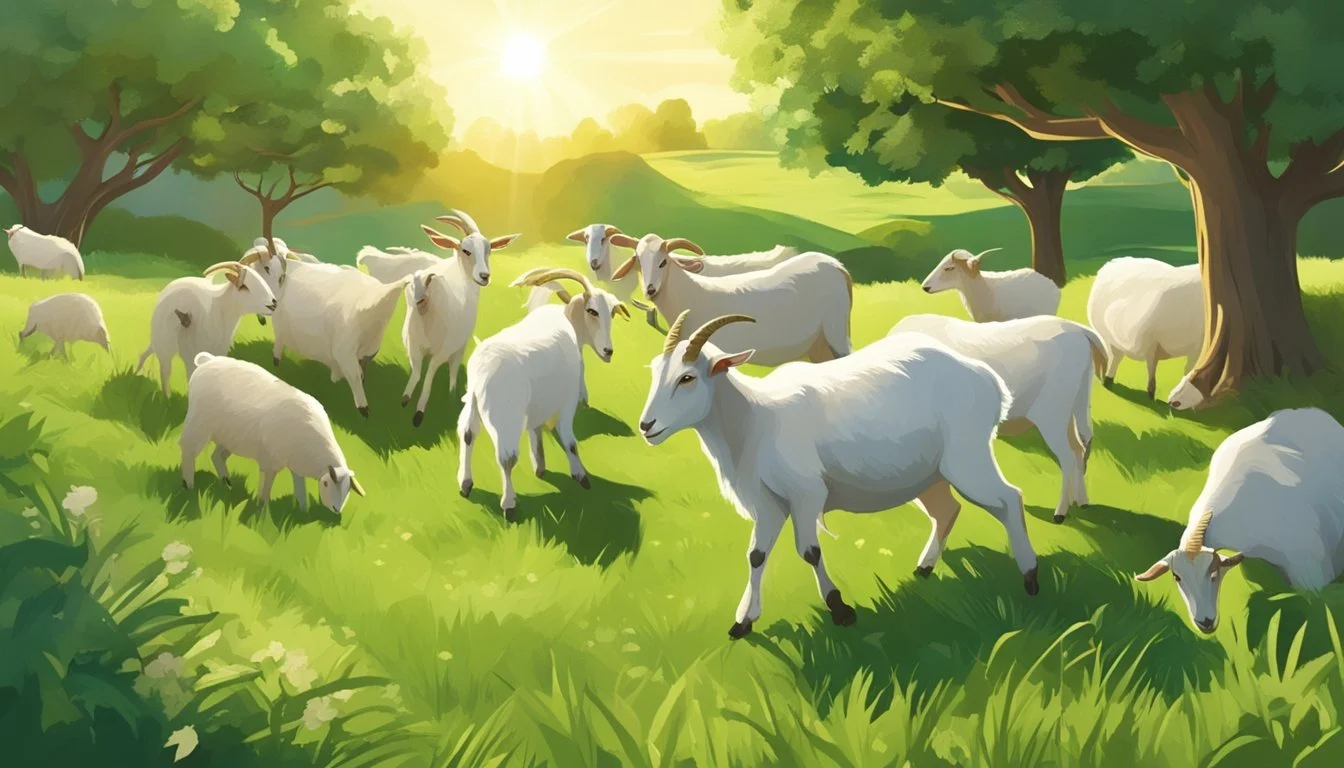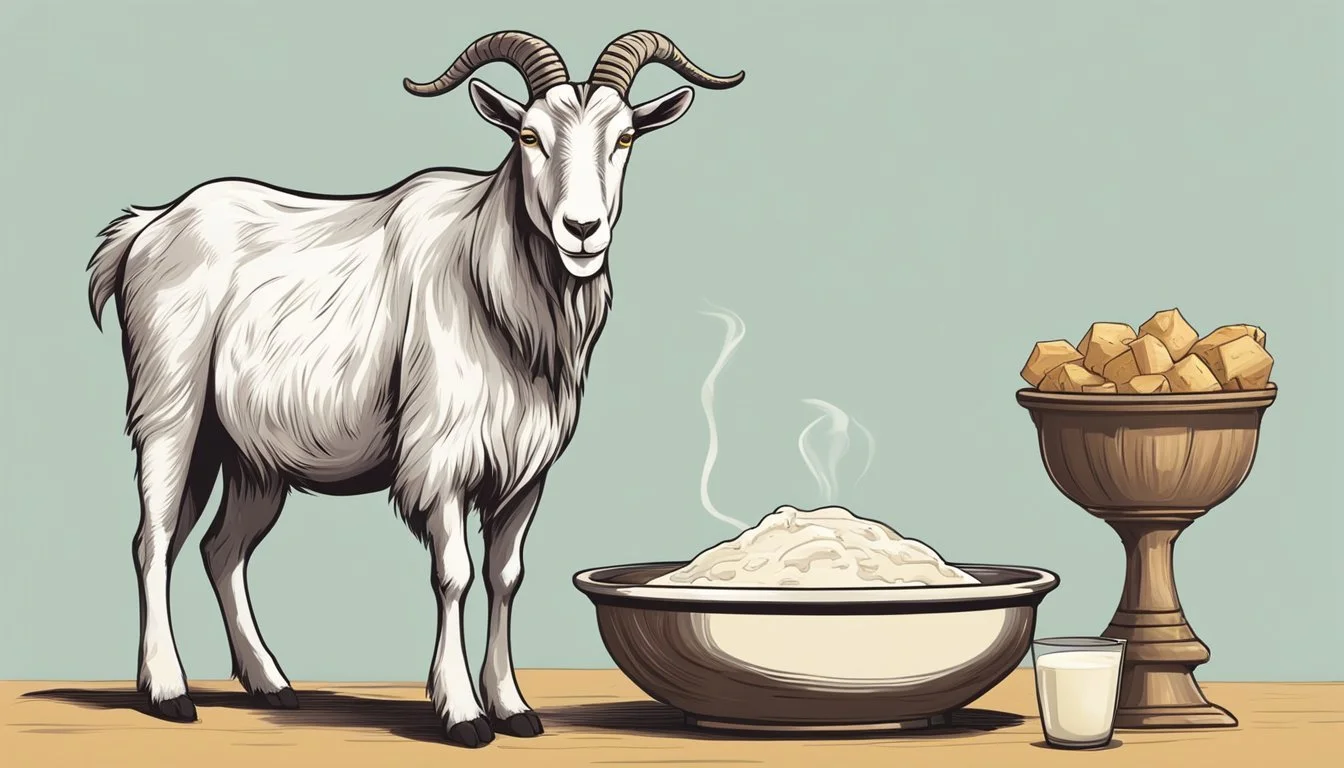Opt for Full-Fat Goat's Milk
Boost Your Child's Nutrition on a Carnivore Diet
Opting for full-fat goat's milk can be a game-changer for children on the carnivore diet. Unlike cow’s milk, goat’s milk is easier to digest and less likely to cause allergies, making it a better choice for young stomachs. Not only is it rich in essential nutrients such as calcium and vitamin D, but the high-fat content aligns perfectly with the carnivore diet’s principles.
In a diet that prioritizes animal-based foods, full-fat goat's milk stands out due to its high protein content and beneficial fatty acids. These nutrients are crucial for a child's growth and development, providing a balanced intake of macronutrients without the anti-nutrients commonly found in plant-based alternatives. This makes it a superior option for ensuring your child maintains optimal health while adhering to a carnivore dietary framework.
Moreover, unlike other types of milk that contain significant amounts of sugar, full-fat goat's milk offers a low sugar profile. This is particularly important for children following the high-fat, low-carb carnivore diet. By choosing full-fat goat's milk, parents can ensure their children receive a wholesome, nutritious beverage that supports both their dietary needs and overall well-being.
The Importance of Full-Fat Goat's Milk in a Carnivore Diet
Full-fat goat's milk offers a rich source of essential nutrients, critical for growth and overall health. Its unique composition provides several advantages over other dairy products, including enhanced digestibility and a better nutrient profile.
Nutritional Advantages
Full-fat goat's milk is packed with essential nutrients, making it a nutritious choice for a carnivore diet. It is an excellent source of protein and fat, both necessary for maintaining energy and bodily functions. Compared to cow's milk, goat's milk contains higher levels of certain nutrients, such as vitamin A and crucial minerals like calcium and magnesium.
Additionally, goat's milk has a different protein structure that makes it easier to digest. The casein content in goat's milk is less likely to cause allergies and digestive issues, providing a smoother digestive experience.
Health Benefits of Full-Fat Milk
Consuming full-fat goat's milk can support various health aspects. The high fat content is beneficial for energy levels and satiety, helping to keep hunger at bay for longer periods. This type of milk contains conjugated linoleic acid (CLA), which has been linked to reduced inflammation and improved body composition.
Regular consumption can aid in heart health and minimizing the risk of cardiovascular disease by supplying healthy fats that promote good cholesterol levels. Moreover, the presence of vitamin D in full-fat goat's milk enhances bone health and boosts the immune system.
Comparing Goat's Milk to Other Dairy
When compared to other dairy products, goat's milk stands out for its digestibility and nutrient content. Unlike cow's milk, which has a higher lactose content that can be problematic for some, goat's milk contains less lactose, making it a suitable option for those with mild lactose intolerance.
In terms of nutrition, full-fat goat's milk surpasses low-fat options by retaining more beneficial compounds such as fat-soluble vitamins. Goat's milk also tends to contain smaller fat globules, which can be easier for the body to break down and utilize, thereby enhancing overall nutrient absorption.
Overall, goat's milk presents a compelling choice for those on a carnivore diet, emphasizing full-fat options for maximal health benefits and nutritional support.
Understanding Fats and Proteins in Goat's Milk
Goat's milk is a nutrient-rich food essential to child development, particularly focusing on its fats and proteins. These components support various bodily functions such as brain development and muscle growth.
Role of Fats in Child Development
Fats in goat's milk are crucial for brain development and energy supply. Goat's milk contains approximately 4.5% fat, which includes beneficial fatty acids like conjugated linoleic acid (CLA) and monounsaturated fats.
These fats are vital for the growth and development of children's brains and bodies. They help build cell membranes and support cellular functions. The short-chain and medium-chain fatty acids found in goat's milk are easily digestible, making it a suitable option for children.
Additionally, fats contribute to the absorption of fat-soluble vitamins, like vitamins A, D, E, and K. These vitamins are essential for vision, immune function, and bone health.
Proteins and Their Significance
Proteins in goat's milk are integral for muscle growth and repair. Goat's milk offers around 3.6% protein content, including important amino acids necessary for bodily functions. Casein and whey proteins, present in significant amounts, have several functional properties that enhance health.
These proteins are easier to digest compared to some other animal products, such as cow's milk, making them suitable for sensitive stomachs.
Proteins support muscle growth and repair, and they are essential for enzymes and hormones production. The anti-inflammatory properties of these proteins can also be beneficial for children with inflammatory conditions.
The health benefits of goat's milk proteins extend to enhancing immune function and supporting overall health, making it a valuable addition to a child's diet.
By including full-fat goat's milk in their diet, children can gain the necessary nutrients for optimal growth and development.
Milk Allergies and Digestive Health
Goat's milk offers several benefits for those with digestive issues and lactose intolerance. This section covers how goat's milk can be a better option than cow’s milk for many individuals.
Lactose Intolerance and Goat's Milk
Lactose intolerance is a common digestive issue where individuals lack the enzyme lactase, needed to digest lactose. Those who are lactose intolerant often experience bloating, diarrhea, and gas after consuming milk. Goat's milk contains slightly less lactose than cow's milk, making it easier to digest for some people.
Additionally, goat’s milk has smaller fat globules and different protein structures, which can further help reduce digestive discomfort in lactose intolerant individuals. While not completely lactose-free, it provides a viable alternative for those unable to tolerate cow's milk.
Digestive Advantages of Goat's Milk
Goat's milk offers several digestive advantages thanks to its unique composition. It is rich in medium-chain fatty acids, which are easier for the body to digest and absorb. Goat's milk also lacks the A1 casein protein found in cow’s milk, which is often linked to digestive issues such as bloating and diarrhea.
Goat's milk's bioavailability of nutrients is higher, meaning the body can absorb vitamins and minerals more efficiently compared to cow’s milk. This can enhance gut health and improve nutrient uptake, contributing positively to overall digestive wellness.
Incorporating Full-Fat Goat's Milk into Your Child's Diet
Full-fat goat's milk can be a valuable addition to a child's diet, especially those adhering to a carnivore diet. It provides essential fats and nutrients while offering easier digestibility compared to cow's milk.
Daily Intake and Serving Suggestions
Daily intake of full-fat goat's milk for children depends on their age and nutritional needs. Toddlers may benefit from 2-3 servings, which translates to about 16-24 ounces per day. This provides a significant portion of their caloric intake and essential nutrients.
Serving suggestions include offering goat's milk as a drink with meals or as part of recipes such as smoothies or milk-based soups. Adding goat's milk to cereals or using it in cooking can also help increase a child's consumption without substantial effort.
Addressing the Carnivore Diet for Children
The carnivore diet primarily includes animal-based products, emphasizing meats, fish, and dairy. Full-fat goat's milk fits well within this diet due to its beneficial nutritional profile. It delivers high levels of fat and vital nutrients such as vitamin A, D, and potassium, ensuring balanced nutrition.
Parents should ensure that other nutrient sources, such as bone broth and high-quality meats, complement the goat's milk intake. Regular consultations with healthcare professionals are advisable to monitor the child's nutritional status, ensuring they meet all dietary requirements.
Alternatives for Non-Milk Drinkers
For children who do not enjoy drinking milk, there are several alternatives to incorporate goat's milk into their diet. Adding goat's milk to tea, coffee (for older children), or making creamy smoothies and shakes can be appealing options. Consider using goat's milk in cooking or baking to enhance the nutritional value of meals without requiring them to drink plain milk.
For those with lactose intolerance, lactose-free versions of goat's milk might be available. However, non-dairy alternatives such as almond milk or coconut milk are options, but they might not provide the same nutritional benefits. Therefore, lactose-free goat's milk is typically preferable to maintain a nutrient-rich diet.
Quality and Safety Considerations
When selecting full-fat goat's milk for a child's carnivore diet, it's essential to understand the quality and safety measures involved. Key concerns include the choice between raw and pasteurized milk, as well as the benefits of opting for organic and pasture-raised varieties.
Raw vs. Pasteurized Goat's Milk
Raw milk and pasteurized milk have distinct differences in terms of safety and nutritional content. Raw milk is often praised for preserving beneficial enzymes and natural nutrients. Advocates suggest it may offer enhanced health benefits.
However, raw milk can pose significant safety risks due to the potential presence of harmful pathogens. Pasteurization, which involves heating milk to a specific temperature to kill off bacteria, offers greater safety assurance. The Centers for Disease Control and Prevention (CDC) recommend heating milk to 145°F (63°C) for 30 minutes to effectively eliminate pathogens.
While pasteurization may slightly reduce certain nutrients and enzymes, it substantially lowers the risk of infections, making it a safer option for children. Parents must weigh these factors carefully to make an informed decision.
Organic and Pasture-Raised Choices
Opting for organic and pasture-raised goat's milk can enhance the overall quality and nutritional value. Organic milk comes from goats raised without synthetic pesticides, fertilizers, hormones, or antibiotics. This ensures a cleaner, more natural product and can contribute to better child health.
Pasture-raised goats offer milk richer in omega-3 fatty acids and other essential nutrients due to their varied diet. Allowing goats to graze freely also promotes animal welfare, as it provides a natural environment and reduces stress.
Consumers often choose organic and pasture-raised options to avoid additives and promote a healthier diet for their children. These choices can further ensure the milk is wholesome and nutrient-dense.
The Role of Goat's Milk in Weight Management
Goat's milk, particularly in its full-fat form, can play a significant role in weight management. It offers unique nutritional benefits that can support a healthy metabolic rate and provide satiety, which can be crucial for managing weight.
Caloric Content and Weight Concerns
Goat's milk contains approximately 70-80 calories per 100ml, depending on the fat content. For those monitoring their caloric intake, this can be important to consider. The higher calorie content compared to cow's milk, largely from fats, may seem counterintuitive for weight loss.
However, these fats can help create a feeling of fullness, or satiety, which might reduce overall calorie consumption throughout the day. The fats in goat's milk include medium-chain triglycerides (MCTs) known to be metabolized differently and potentially support weight loss.
Full-Fat Dairy and Metabolism
The full-fat content in goat's milk can contribute to metabolic health. Full-fat dairy has been shown to aid in maintaining a healthy metabolism. Essential nutrients like calcium and vitamin A in full-fat goat's milk not only support metabolic functions but also hormonal balance.
Research indicates that full-fat dairy consumption may not necessarily lead to weight gain and might help some individuals maintain or achieve a healthy weight. The unique fatty acid composition in goat's milk, including MCTs, can enhance energy expenditure and promote ketosis in a ketogenic diet, thus supporting weight management efforts.
By integrating full-fat goat's milk into your child's carnivore diet, you can ensure they receive essential nutrients while aiding in effective weight management.
Nutritional Comparison with Plant-Based Milks
Comparing goat's milk to plant-based alternatives like almond milk and coconut milk reveals important differences in nutrient profiles, taste, and texture that are essential for those on a carnivore diet.
Goat's Milk vs. Plant-Based Nutrient Content
Goat's milk offers a robust nutritional profile with a complete protein content that many plant-based milks lack. Goat's milk provides about 8 grams of protein per serving along with essential vitamins such as B12 and D, and minerals like calcium and phosphorus.
In contrast, almond milk and coconut milk typically have lower protein content, often around 1-2 grams per serving. These plant-based milks may be fortified with vitamins and minerals, but their overall nutrient density is generally less than goat’s milk. For children on a carnivore diet, the high fat and complete protein in goat's milk can be particularly beneficial.
Taste and Texture Considerations
Goat’s milk is known for its rich, creamy texture and slightly tangy taste. This can be more appealing to some children compared to the often watery consistency of certain plant-based milks. Additionally, the natural creaminess of goat's milk lends itself well to various recipes, making it versatile in the kitchen.
On the other hand, almond milk and coconut milk have a thinner consistency and milder taste. These plant-based options might not always blend as well in recipes that require creaminess and can have a more pronounced nutty or coconut flavor. For those on a carnivore diet, the familiar and richer texture of goat’s milk is a considerable advantage.
Debunking Myths About Full-Fat Dairy
Full-fat dairy products, such as goat's milk, often face criticism regarding their impact on heart health and inflammation. This section addresses those concerns head-on.
Saturated Fats and Heart Disease
The belief that saturated fats in full-fat dairy inevitably lead to heart disease is not entirely accurate. Saturated fat can indeed raise low-density lipoprotein (LDL) cholesterol levels. However, full-fat dairy also increases high-density lipoprotein (HDL) cholesterol, which is beneficial for heart health.
Additionally, studies have not conclusively linked full-fat dairy consumption with an increased risk of heart disease. The overall dietary pattern may be more relevant. For example, full-fat dairy within a balanced diet rich in fruits, vegetables, and lean proteins does not show the same risks.
Dairy Fat and Inflammation
Concerns about dairy fat causing inflammation are prevalent. Some suggest that consuming full-fat dairy can down-regulate pro-inflammatory genes within the body, potentially reducing inflammation.
Certain components of dairy, such as calcium and vitamin D, may contribute to a more robust immune system. Full-fat options retain these beneficial nutrients. On the other hand, low-fat or fat-free dairy products can lose essential fats that may have protective effects against inflammation.
By clarifying these points, it's easier to understand why full-fat dairy, including goat's milk, can be an essential part of a child's diet without the feared adverse effects on heart health and inflammation.
Additional Health Considerations
There are several important health considerations when including full-fat goat's milk in a child's carnivore diet. These involve its impact on bone health, the potential diabetes risk, and the presence of hormones and antibiotics.
Bone Health and Calcium Absorption
Goat's milk is rich in calcium, phosphorus, magnesium, and potassium, which are crucial for bone formation and maintenance. It also includes vitamin D and vitamin A, enhancing the absorption of calcium and phosphorus. These nutrients collectively support bone health and strengthen bones in growing children.
Moreover, calcium is essential for bone density and reducing the risk of osteoporosis later in life. Given that goat's milk is often easier to digest compared to cow's milk, calcium absorption might be more efficient for some children.
Goat's Milk and Diabetes Risk
When considering the potential diabetes risk, it's essential to note that full-fat goat's milk has a balanced composition of fats and proteins. This balance helps in maintaining steady blood sugar levels and preventing spikes.
Unlike high-sugar beverages, goat's milk provides a low-glycemic index alternative, which can be beneficial in managing or reducing the risk of type 2 diabetes. The natural fats in goat's milk offer quick energy sources without disrupting glucose metabolism significantly.
Understanding Hormones and Antibiotics in Goat's Milk
Hormones and antibiotics are common concerns when choosing milk. Goat's milk generally contains fewer synthetic hormones compared to cow’s milk. This reduced exposure is particularly beneficial for children, minimizing the risk of hormone-related issues.
Commercial goat farms also often use fewer antibiotics. Ensuring that the milk is sourced from organic, hormone-free farms can further reduce these risks. These practices contribute to maintaining overall health and wellness in children.
By focusing on these key areas, incorporating full-fat goat's milk into a carnivore diet can provide substantial health benefits, ensuring a robust and balanced approach to nutrition for children.
Environmental Impact of Goat Farming
Goat farming provides various environmental benefits and addresses important animal welfare and ethical concerns. Sustainable goat dairy production and responsible animal treatment are key focuses in this area.
Sustainability of Goat Dairy
Goat dairy can be more sustainable than other livestock options. Goats require fewer resources, such as water and land, compared to cattle. Moreover, they can thrive on less fertile land, contributing to better land management and reduced soil degradation.
Goats also help maintain local vegetation. Their grazing habits prevent the spread of invasive plant species and promote the growth of native plants. Additionally, goat milk production results in a smaller carbon footprint. Per kilogram of goat milk, only 5.2 kg CO2e is released, which is significantly lower than the emission rates for cow milk.
Animal Welfare and Ethical Concerns
Animal welfare is a significant aspect of goat farming. Ensuring proper living conditions, such as adequate space, proper nutrition, and access to veterinary care, is essential for the ethical treatment of goats. Practices that minimize stress and promote natural behaviors are crucial for the animals' overall health.
Ethical concerns also extend to slaughter practices. Humane slaughter methods are necessary to minimize the animals' suffering. Transparent and regulated practices ensure that the goats' welfare is prioritized throughout their lives and during production processes.
Implementing these practices not only addresses ethical issues but also can lead to better productivity and higher-quality products, benefiting both producers and consumers.
By focusing on sustainable practices and high animal welfare standards, goat farming can be a responsible choice for environmentally conscious consumers.

